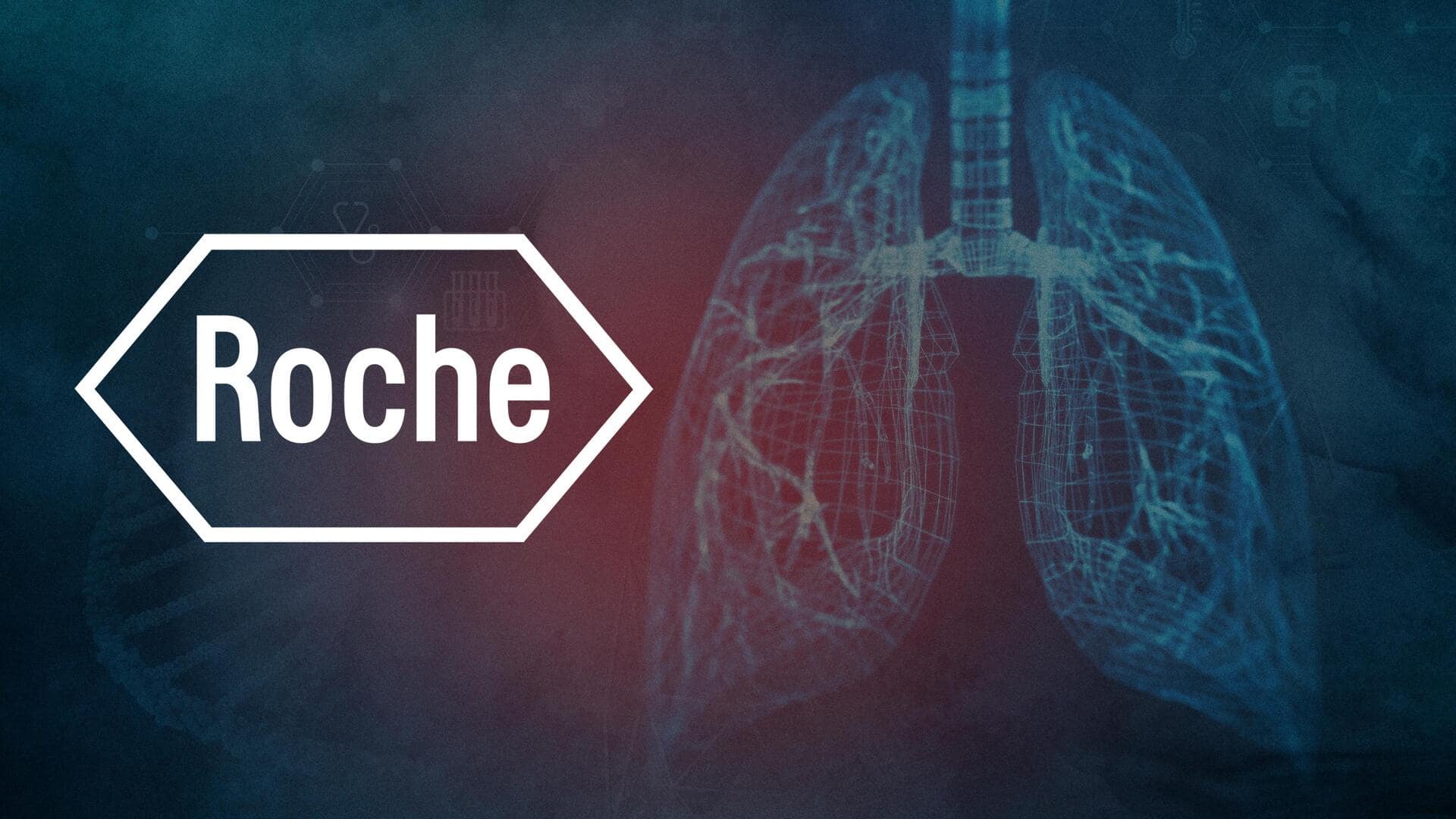
Swiss drugmaker excels lung-cancer treatment; to use AI for patient-identification
What's the story
Roche Holding AG's cancer medication—Alecensa—has reportedly shown a significant edge over traditional chemotherapy for lung cancer.
The research indicated administering Alecensa after surgical removal of lung tumors reduced the likelihood of cancer recurrence or death by 76%.
Roche's Chief Medical Officer Levi Garraway said it could "potentially alter the course of this disease."
However, pinpointing patients who might benefit from this treatment could be difficult, as the study focused on a specific gene mutation found in only 4-5% of patients.
Details
AI collaboration with Israeli firm to aid in patient detection
To tackle the issue of identifying appropriate patients for Alecensa, Roche has reportedly teamed up with Israeli tech firm Medial EarlySign Ltd.
This partnership will employ artificial intelligence (AI) to assist doctors in deciding when to get CT scans for early tumor detection.
Roche's oncology and hematology drug development head, Charlie Fuchs, mentioned that deep data algorithms could help identify non-smokers at risk.
"We hope more patients can be found early and benefit from this," Fuchs added, per Bloomberg.
Scenario
Alecensa's potential impact on lung cancer treatment, sales
Roche has reportedly submitted the Alecensa study findings to regulators for approval and presented the complete results at the ongoing European Society for Medical Oncology Congress.
The medication is approved in the United States, Europe, Japan, and China for people with ALK-positive metastatic lung cancer.
Analysts estimate that Alecensa will bring in CHF 1.56 billion in sales this year.
Fuchs stressed that effective drugs don't need to cater to a large patient population to achieve scientific and financial success.